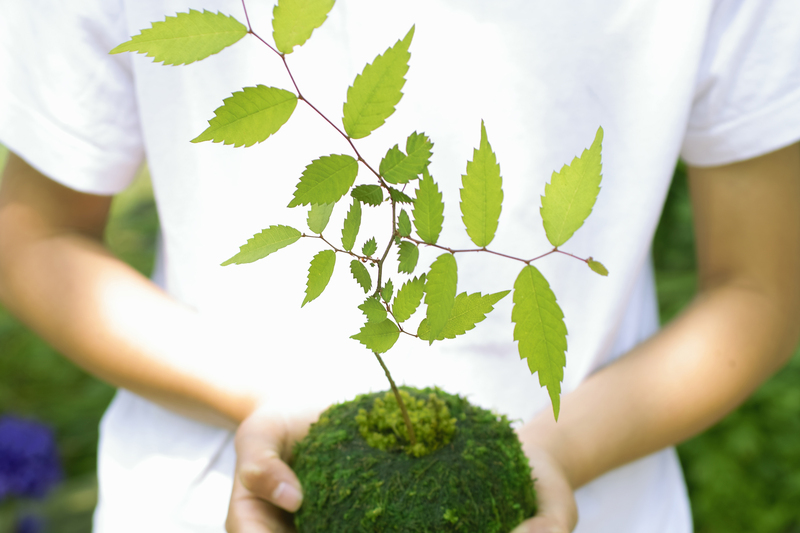Fun Garden Projects for Kids
Posted on 26/02/2025
Gardening can be an educational and exciting experience for children of all ages. Not only does it instill a love for nature, but it also teaches essential skills such as responsibility, patience, and teamwork. If you're looking for some fun garden projects to keep your kids engaged and entertained, you've come to the right place! Here are some exciting garden projects that your little ones will absolutely love.
Sensory Garden
Creating a sensory garden is a fantastic project that involves all five senses: sight, touch, smell, taste, and hearing. Choose plants that cater to these senses, such as colorful flowers for sight, soft leaves for touch, fragrant herbs for smell, fruits and vegetables for taste, and rustling plants or wind chimes for hearing. Kids will enjoy planting, watering, and observing how these plants grow.

DIY Bird Feeders
Bird feeders are a great addition to any garden, allowing kids to attract and observe various bird species. You can create simple bird feeders using supplies like pine cones, peanut butter, and birdseed. Have your children spread peanut butter on a pine cone and roll it in birdseed. Hang the pine cone from a tree branch and watch as birds come to feast!
Fairy Garden
A fairy garden is a miniature, whimsical garden that will ignite your kids' imagination. Choose a small area in your garden or use a container. Let your children decorate with tiny plants, pebbles, and fairy figurines. This project allows for creativity and storytelling, making it a delightful activity.
Vegetable Garden
Starting a vegetable garden teaches children about where food comes from and encourages healthy eating habits. Choose easy-to-grow vegetables like tomatoes, carrots, and radishes. Let your kids participate in planting seeds, watering, and harvesting. There's nothing quite like the satisfaction of eating something you've grown yourself!
Painted Rocks
Collecting and painting rocks is a simple and fun garden project. Kids can paint rocks to resemble insects, animals, or abstract patterns. Once dry, these painted rocks can be scattered throughout the garden as decorations or used to mark plant names.
Worm Composting
Worm composting, or vermiculture, is an eco-friendly project that teaches kids about decomposition and recycling organic waste. Set up a worm bin with soil, shredded newspaper, and red worms. Teach your children how to feed the worms kitchen scraps like fruit peels and vegetable ends. Over time, the worms will produce nutrient-rich compost to use in your garden.
Miniature Greenhouse
A miniature greenhouse is a fantastic way for kids to learn about plant propagation and growth. You can make a simple greenhouse using a plastic container or a clear plastic bag. Place potted seedlings or young plants inside to create a warm, humid environment that promotes faster growth. Kids will be amazed by the results!
Tire Planters
Reuse old tires by turning them into colorful planters. Clean the tires thoroughly and let your kids paint them in vibrant colors. Once the paint dries, fill the tires with soil and plant flowers or vegetables. These tire planters add a pop of color to your garden and offer a unique planting space.
Pros and Cons
Pros:
- Encourages outdoor activity and reduces screen time.
- Teaches children responsibility, patience, and the value of hard work.
- Provides an educational experience about nature and ecosystems.
- Promotes healthy eating habits through growing and consuming homegrown vegetables.
Cons:
- Requires continual supervision, especially with younger children.
- Initial setup can be time-consuming and requires some investment in materials.
- Outdoor conditions, such as weather, can sometimes hinder gardening activities.
Tips for Successful Garden Projects
- Choose age-appropriate projects to ensure safety and enjoyment.
- Start with easy-to-grow plants to build confidence in young gardeners.
- Involve children in the planning process to spark their interest and enthusiasm.
- Encourage regular garden visits to foster a sense of responsibility and accomplishment.
- Use organic and natural gardening methods to teach eco-friendly practices.

Takeaways
- Gardening with kids is a wonderful way to bond and create lasting memories.
- Numerous garden projects cater to various interests and skill levels.
- The benefits of gardening extend beyond just the garden, impacting dietary choices and environmental awareness.
Conclusion
Gardening provides an excellent opportunity for kids to explore, learn, and grow. From creating sensory gardens to painting rocks, these fun garden projects will captivate their imagination and teach valuable life skills. While there are some challenges to consider, the benefits far outweigh them. By following the tips and engaging your kids with these activities, you'll cultivate both a beautiful garden and precious memories.
Now, it's time to get your hands dirty and embark on these delightful garden adventures with your children! Happy gardening!




